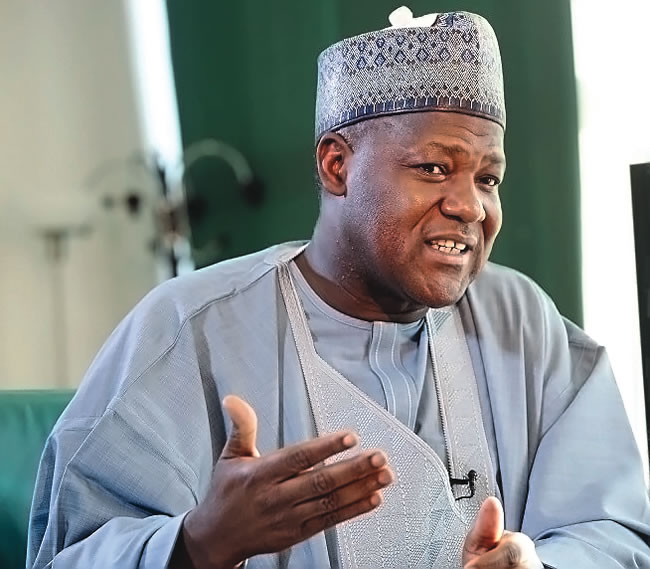Former Speaker of the House of Representatives, Yakubu Dogara, has blamed the economic crisis and the sharp fall in the value of the naira on the actions of the immediate past administration under former President Muhammadu Buhari.
Speaking on Tuesday at the inaugural lecture of the House of Representatives Press Corps (HORPC), themed “Navigating Tax Reforms in Nigeria: Insights on President Tinubu’s Policies”, Dogara said the Buhari government printed and injected ₦22.7 trillion into the economy through the controversial Ways and Means provision — a move that severely weakened the naira.
The Ways and Means is a borrowing mechanism used by the federal government to fund budget shortfalls by taking loans directly from the Central Bank of Nigeria (CBN). Although legal under certain conditions, the practice came under heavy criticism in recent years for its excessive and unchecked use.
Dogara said, “By the time President Tinubu took office, the economic debris of the nation had become too conspicuous to be ignored. ₦22.7 trillion had been printed and injected into the economy in the name of Ways and Means, thereby destroying the value of the naira in our pockets.”
He noted that this massive cash injection created runaway inflation and significantly reduced the purchasing power of ordinary Nigerians.
In addition to excessive borrowing, Dogara criticised Buhari’s foreign exchange policy, especially the dual exchange rate regime, which he said created opportunities for corruption and massive profiteering by a few privileged individuals.
“The dual exchange rate meant that some anointed people were making hundreds of millions of naira off forex allocations from the CBN without producing any goods or offering any services whatsoever,” he said.
The former Speaker described this system as “voodoo economics,” saying it was unsustainable and misleading.
“Some of the foreign loans had even been procured in order to help strengthen the naira — a measure that could only be sustained by voodoo economics,” he added.
Dogara, who currently serves as Chairman of the National Credit Guarantee Company (NCGC), said Nigeria’s economic problems did not begin with the Tinubu administration and that reforms currently underway are responses to a broken system inherited from the past government.
He stressed that President Tinubu’s economic reforms, particularly in tax and fiscal policy, were not based on ego or guesswork but on the need to correct serious damage done to the economy.
“Before delving into the subject matter proper, it is important to provide some context so that we don’t think the reforms came out of the blue or that it was some kind of ego trip embarked upon by the government,” Dogara explained.
He praised Tinubu for establishing the Presidential Committee on Fiscal Policy and Tax Reforms, led by renowned tax expert, Taiwo Oyedele. According to Dogara, the committee has proposed “revolutionary reforms” aimed at modernising and simplifying Nigeria’s tax system.
One of the major goals of the tax reform, he said, is to repeal and re-enact outdated tax laws that no longer serve the country’s development needs.
Dogara, however, criticised some Nigerians who have opposed the tax reform bills, alleging that their opposition was politically motivated and aimed at making the Tinubu administration fail.
“Some Nigerians who opposed the tax bills did so, hoping that Tinubu would fail. But these are reforms we must undertake if we are serious about fixing the economy,” he said.
The former Speaker urged lawmakers and stakeholders to support reforms that would help Nigeria reduce its reliance on oil revenue, broaden its tax base, and attract more investment.
Nigeria has faced serious economic challenges in recent years, including high inflation, rising unemployment, and declining foreign reserves. The naira has lost significant value, especially after the removal of fuel subsidy and unification of exchange rates under President Tinubu’s watch.
While some critics argue that Tinubu’s reforms have increased hardship in the short term, supporters like Dogara say the tough decisions are necessary to reset the economy and promote long-term growth.
Dogara concluded his speech by calling for unity in supporting policies that promote transparency, economic recovery, and national development.

